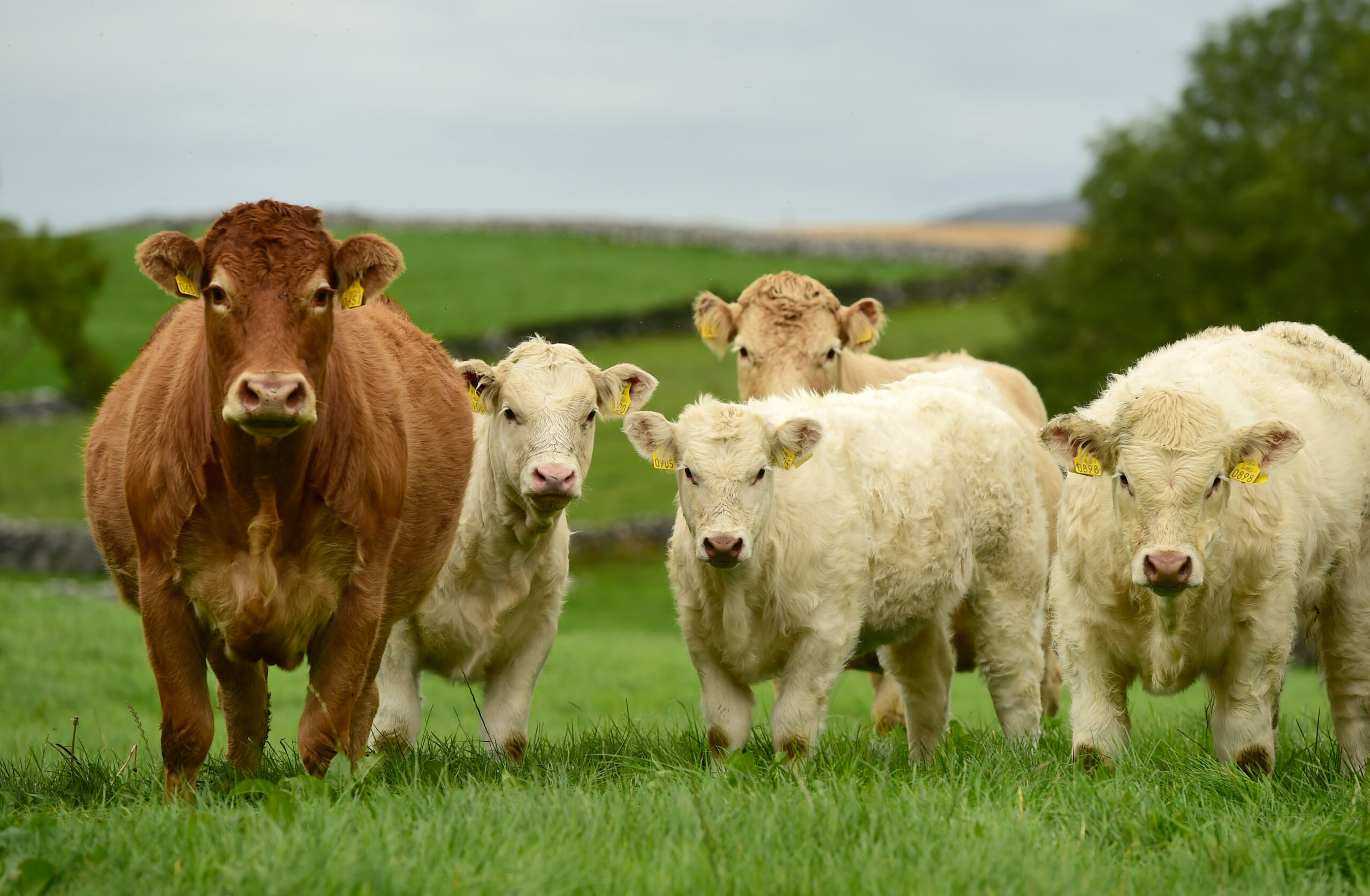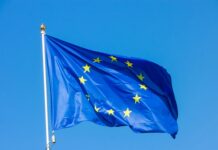Animal husbandry has an important impact on the use of primary resources such as water, energy and fuel consumption in logistics and CO2 production. Despite this, it is possible to do a lot in this field looking at new technologies without forgetting tradition. This is what is happening in Ireland with the Bord Bia, Irish food board, where the working standard of farmers has led to a reduction in CO2 emissions per unit of beef and dairy produced, safeguarding the health of animals and people. This is just one of the successes of a sustainability plan of a supply chain that represents an important asset of exports.
Canale Energia interviewed James O’Donnell, Director of Bord Bia Italy, the government agency for the promotion of Irish Food & Beverage products that illustrates the assets and successes of the country’s livestock sector.
How does Bord Bia, the government body for the promotion of Irish Food & Beverage products, look at sustainability?
According to the Food and Agriculture Organisation of the United Nations, by 2050 we will have to produce 60% more food to feed a world population of 9.6 billion people. Furthermore, in the last month, with the war in Ukraine, we have seen the importance of food security in our lives and the impact of supply disruptions from an economic perspective.
Producing food in harmony with nature, in a sustainable way has always been a key objective of the Irish food industry’s strategy. This year we are celebrating 10 years of Origin Green – the national food sustainability programme. Our organisation is responsible for the implementation of this programme. The programme promotes improved sustainability throughout the supply chain, from farm to fork. We work with over 55,000 farmers and 300 leading food companies to certify and improve the sustainability of the food they produce to meet the evolving needs of today’s consumers.
We are proud that over 90% of the food we export is part of this programme, whose targets are independently verified and we aim to measure what matters in reducing the carbon footprint associated with food production.
Livestock farming is accused of being one of the largest sources of consumption of the planet’s resources. How is the meat production chain in Ireland structured and how is it coping with the ecological transition?
Yes, food production uses our planet’s resources, but we still have to eat. What is important is to produce food as sustainably as possible, using nature and science to reduce the impact on the environment. This is what we aim to do with Origin Green. First of all, food production from grass is low impact. For the past 10 years we have worked with our farmers to establish the carbon footprint of each farm. Our sister organisation Teagasc, the Gov Farm Advisory Organisation, is working with these farmers to ensure best practices and new technologies to further reduce their footprint. And we are succeeding. Beef and milk are the two main components of our industry. Over the last ten years Origin Green has achieved a reduction of over 6.3% in CO2 emissions per unit of beef and dairy produced in Ireland by our participating members. Our industry has launched over 13,600 sustainability initiatives since we started. Some results of these initiatives: food producers have achieved an average 11% reduction in energy use per unit of production and a 17% reduction in water use. The best performing farmers are also rewarded for their best practices: members of our beef, dairy and lamb programmes receive a point-of-sale bonus for successfully participating in these quality production initiatives in a sustainable manner.
What is the Grass Fed standard and why did you introduce it? Is it 0 km grass or imported grass? If so, how is the life cycle of the supply chain calculated?
Beef produced from grass-fed systems is among the most sustainable in the world, with a carbon footprint of half the global average, and Ireland has always been synonymous with green fields, clean fresh air and abundant rain. This is a key natural advantage that creates the perfect environment for raising livestock on a grass-based diet, which has always been Ireland’s production system. Irish farmers continue to work with care, commitment and respect for tradition, so when it comes to the Grass Fed standard, Ireland is at the forefront.
The Grass Fed Standard, developed by Bord Bia, is the world’s first protocol that independently verifies Grass Fed beef and guarantees the grass-based diet of each animal. It is a guarantee of what we have always known: grass is the key ingredient that makes Irish beef and lamb top quality meat and in Ireland it is present in huge quantities.
The Standard defines Bord Bia’s specifications for classifying beef as “Grass Fed”: it must come from animals fed at least 90% on grass or grass-based fodder, which graze outdoors for an average of 220 days per year, throughout their lives. The protocol uses data collected during audits carried out under the Bord Bia Sustainable Beef and Lamb Assurance Scheme, adopted on a voluntary basis as part of Ireland’s national ‘Origin Green’ programme for sustainability in agri-food production. Thanks to the Standard, Irish producers are now able to prove that their beef comes from pasture-based livestock.
Overall, by how much have you reduced the impact of the supply chain and in how long? Have you set yourself future improvement targets to achieve?
We are completely open and transparent in what we are doing under our Origin Green programme and you can find the full progress report on our website: https://www.origingreen.ie/globalassets/origingreen/bord-bia-origin-green-progress-update-report-2021.pdf
We are committed as a country to producing food in harmony with nature. Let me highlight some of the results of our report: we work with more than 55,000 farmers, for each of these farms a carbon footprint measurement is taken every 18 months. No other country measures its environmental impact so precisely. As many as 300 leading food and drink companies are part of our programme. They have set 2,780 sustainability targets and implemented 13,600 sustainability initiatives since we launched the programme. These companies have achieved an average 11% reduction in energy use per unit of production and a 17% reduction in water use. Producers have planted around 10,000 trees on their sites and donated 4,700 tonnes of surplus food to FoodCloud and €8 million to community and charitable organisations. As a country we are planting around 22 million trees a year with a target of 440 million by 2040. The programme continues to evolve and is aligned with the Ireland National Climate Plan. In 2016, Bord Bia demonstrated the alignment of the Origin Green Charter with 9 of the 17 UN SDGs (Sustainable Development Goals), today we are aligned with 15 of the 17.
The results, confirmed by the 2021 Origin Green Progress Report, are very positive: to date, over 1 million trees have been planted to preserve biodiversity; and over 290,000 carbon footprint assessments have been carried out, showing an average reduction of 6.3% of CO2 per unit of beef produced. Origin Green producers are working together with Bord Bia, industry stakeholders and other organisations to support wider sustainability efforts in Irish food and drink production and achieve the Sustainable Development Goals set out by the United Nations.
In addition to animal welfare on farms and attention to waste in the supply chain, farms also have an impact as businesses on the local area, is there a focus on this and is there a programme in place to contain consumption?
Agriculture and food production will play an important role in the Ireland Overall Climate Action Plan, the blue print for meeting our commitments to reduce CO2 emissions. Farmers know the land better than anyone and this plan will empower them with a science-based approach, underpinned by sound research. Farming practices that enable farmers to produce top quality food with a smaller carbon footprint are critical. The plan commits to using less chemical nitrogen and ensuring a more targeted use of fertilisers, while maintaining the same level of grass growth through multi-species grasslands. The aim is to reduce emissions by 30% by 2030. Significant changes under the Green Deal will see farmers financially rewarded for organic farming initiatives, increased hedgerow growth, tree planting.
How do you relate to the Italian and European supply chain? Are there replicable best practices?
Innovative policy developments have emerged from the implementation of the European Green Deal, which sets out an ambitious and wide-ranging sustainability agenda to transform the EU economy. Key policy initiatives for the Irish and Italian agri-food industry follow the Producer-to-Consumer Strategy, the Biodiversity Strategy and the Circular Economy Action Plan which together will lead to over 120 legislative and non-legislative initiatives over the next four years.
In 2020, the Irish government enacted landmark legislation to legally enforce the reduction of carbon emissions. The Climate Action and Low Carbon Development Bill commits Ireland to achieving climate neutrality by 2050. Food Vision 2030, the new 10-year strategy for Ireland’s agri-food sector, sets an ambitious goal for Ireland to become a ‘world leader in sustainable food systems’ and Origin Green will play a key role in driving this change.
Per ricevere quotidianamente i nostri aggiornamenti su energia e transizione ecologica, basta iscriversi alla nostra newsletter gratuita
e riproduzione totale o parziale in qualunque formato degli articoli presenti sul sito.




















